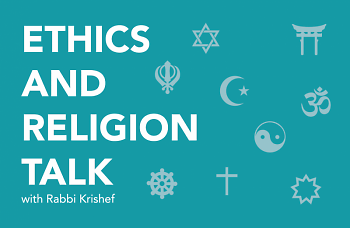Father Kevin Niehoff, O.P., a Dominican priest who serves as Judicial Vicar, Diocese of Grand Rapids, responds:
“Before the outbreak of COVID-19, my Dominican Province hosted a retreat for those of us who wished to attend. So, yes, I have taken retreats designed for clergy. However, I do not go on these retreats exclusively. Some years I reserve one of the Province’s vacation homes for a week and spend my time there in solitude and prayer. Both communal and private retreats are beneficial.
“The Province retreats have usually been at a retreat house in Chicago not far from the Lincoln Park Zoo. Despite the hustle and bustle of the city around us, the retreat house is calm, peaceful, and quiet. I have attended retreats in rural settings. Both types have been spiritually fulfilling.
“Retreats do not need to be in a rural setting. While on retreat, one needs a place of peace, quiet, rest, solitude, and places to pray. Both have pros and cons, but they provide the necessary time away from work to rejuvenate the soul for the sake of ministry.”
The Rev. Sandra Nikkel, head pastor of Conklin Reformed Church, responds:
“As a pastor in full time ministry, my retreats are a must. I owe it to my congregation to stay healthy and vibrant in my ministry and retreats are a big part of it, I have been retreating with twenty other pastors and people in full time ministry for the past seven years. We meet every four months for three days at a retreat center. It is a discipline I'm committed to even when I seem too busy to do it.
“Every time I meet, I come back refreshed and renewed! These retreats provide guided times of meditation and prayer and personal time in God's Word. They also provide a time to share our struggles, joys, and per;sonal prayer requests within the context of confidentiality, care, and support.
“My personal belief is that pastors do not need another conference filled with information about ministry strategies; what they need is transformation. They need to make space for God to continue to work on them because we're all work in progress. They need time to listen to God in a quiet setting where they will not be pulled into tasks. They need time to hear that God loves them and appreciates their service. Unfortunately, many pastors who are in ministry today refuse to take the time to do this and they are running the risk of burning out. My prayer is that all pastors who are not retreating alone with God today will hear God's voice calling them: "Come near to God and he will come near to you." (James 4:8a)”
Fred Stella, the Pracharak (Outreach Minister) for the West Michigan Hindu Temple, responds:
“Aside from my membership/leadership role with West Michigan Hindu Temple, I am also actively involved in the local chapter of Self Realization Fellowship, a worldwide spiritual society that promotes an engaged contemplative life. SRF strongly encourages both its clergy and laity to take retreats at least annually. I value such opportunities deeply. The days (usually a weekend) are filled with yoga exercise, meditation, chanting, classes and personal time for study. And most of the time all retreatants maintain silent as much as possible outside of chanting or a personal counseling session with a facilitator.
“I can’t tell you how much these events are recharging. My wife and I often take advantage of these together. It’s interesting how much good a retreat does our marriage. Meditating together can certainly have that effect.”
The Reverend Colleen Squires, minister at All Souls Community Church of West Michigan, a Unitarian Universalist Congregation, responds:
“Unitarian Universalist clergy do have annual retreats often in October and in a rural setting. We have short informal worship daily, and time set aside to do our spiritual practices. We often do a ‘check in’ to discuss our ministerial setting or community and our overall well-being. We go out to dinner in large groups. And we have some training or educational workshop. Our retreats usually last 3 days.”
My response:
I don’t know what you imagine happens when a bunch of pastors, ministers, reverends, rabbis, imams, priests, preachers, get together. Is there mass consumption of single-malt, wine, beer, and hard cider? Do we stay up late singing folk songs and playing guitar? Do we compare congregational sizes and average number of hours worked per week? Do we show off our psychological battle scars from our worst leadership meeting conflicts? Maybe ...
But I have also participated in retreats in rural settings which combine silence, meditation, yoga, and study, at which we are encouraged to put away our electronic devices for most of the day and ‘retreat’ from the world. More often, I participate in Rabbinic study programs at which we engage in professional development and learning, with time for informal socializing. At these as well, I try to set aside ‘work’ communications and focus on connecting with colleagues.
This column answers questions of Ethics and Religion by submitting them to a multi-faith panel of spiritual leaders in the Grand Rapids area. We’d love to hear about the ordinary ethical questions that come up in the course of your day as well as any questions of religion that you’ve wondered about. Tell us how you resolved an ethical dilemma and see how members of the Ethics and Religion Talk panel would have handled the same situation. Please send your questions to [email protected].
The Rapidian, a program of the 501(c)3 nonprofit Community Media Center, relies on the community’s support to help cover the cost of training reporters and publishing content.
We need your help.
If each of our readers and content creators who values this community platform help support its creation and maintenance, The Rapidian can continue to educate and facilitate a conversation around issues for years to come.
Please support The Rapidian and make a contribution today.
